The organization Reporters Without Borders (RSF) published last May 2nd its 2025 world press freedom ranking map, in which Nicaragua for the first time becomes the country with the least freedom in the region, and one of the 8 worst countries in the world in that matter. It occupies the 172nd position among 180 countries, with a score of 22.83 points.
In 2017, the year prior to the onset of the socio-political crisis, Nicaragua ranked 92nd out of 180 with a score of 68.99 points which made it the best positioned among 12 countries in the region. Currently even Cuba and Venezuela are better placed than Nicaragua, which is also at the same level as China, North Korea, Vietnam and Afghanistan just to mention some of the countries with which it is compared.
This truly dramatic and regrettable result clearly shows what the Ortega-Murillo dictatorship did in the last seven years, and particularly since 2021 when it manipulated the outcome of the elections in the face of the impossibility of winning them in a democratic manner. To achieve this, he imprisoned aspiring candidates, independent journalists, confiscated media outlets and changed the legal framework to end all their independence.
Now what remains is a system of political propaganda that includes the few private media that still exist.
Freedom of the press, as well as freedom of association, religious, educational, political and other freedoms, are a thing of the past.
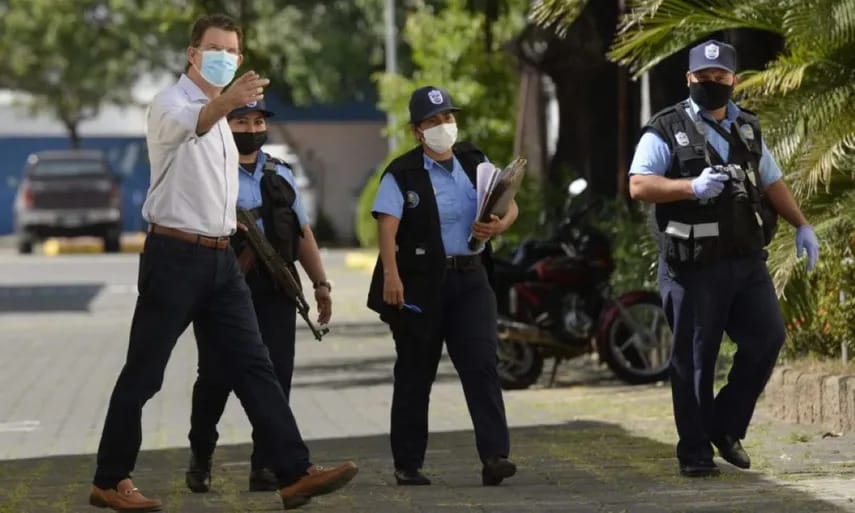
They do not bow down in the face of adversity
But in the midst of this lamentable situation, RSF highlights the role of the independent media in exile, which has grown to an important group despite all the obstacles and repression.
It is no coincidence, therefore, that the day after the release of the RSF report, in the framework of World Press Freedom Day, the United Nations Educational, Scientific and Cultural Organization (UNESCO) awarded the Guillermo Cano World Press Freedom Prize to the Nicaraguan newspaper La Prensa. This year the newspaper was also awarded the 2025 King of Spain Prize.
In fact, La Prensa has accumulated a history of critical journalism, denunciation and defense of press freedom for more than 90 years, which has earned it attacks from different governments, the assassination of its martyred director Pedro Joaquín Chamorro and in 2021, the assault and confiscation of the newspaper’s facilities, which prevents its printed circulation.
In spite of adversity and persecution, from exile La Prensa maintains its principles, the defense of freedom of the press and the fight for the freedom of Nicaragua.
As have so many media outlets and press men and women, several of whom have also received recognition and awards for their journalistic work, their dedication, commitment and the excellence of their work. Particularly the permanent denunciation of repression, the violation of human rights, and the defense of freedom of the press in Nicaragua since the civic insurrection of April 2018.
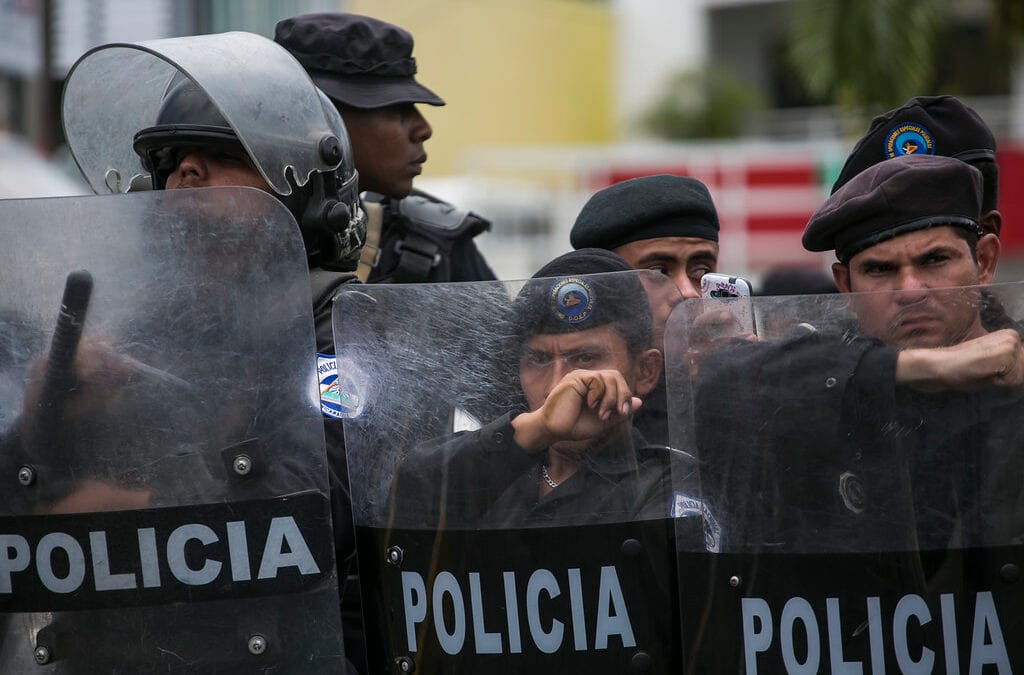
Dictatorship could not stand it and resigned from UNESCO
Following this recognition, the co-dictator Rosario Murillo reacted virulently, attacked the newspaper and UNESCO and decided to withdraw from the organization.
Despite the information blockades, the control, closure, confiscation and destruction of media within the country, the cruel persecution of journalists, the imprisonment, exile, banishment and denationalization, the enactment of “gag” laws to silence the independent media and the hate speeches of Ortega and Murillo, as reflected in the RSF report, thanks to the independent media everything that happens in Nicaragua is known in the world and the dictators cannot hide their crimes.
His Holiness Pope Leo XIV, in his first audience with the media, requested the release of the imprisoned journalists, four of them in Nicaragua. He expressed that the Church “recognizes the value of those who defend dignity, justice and the right of the people to be informed because only informed people can make free decisions”.
From the Nicaraguan Democratic Concertation (CDN), we recognize the diverse informative platforms that from exile and working with their fingernails, continue investigating, informing and denouncing the abuses of the dictatorship; and we consider that each award received exalts their work and feeds that flame that does not go out and the hope of a better future for Nicaragua.
Enemies of humanity
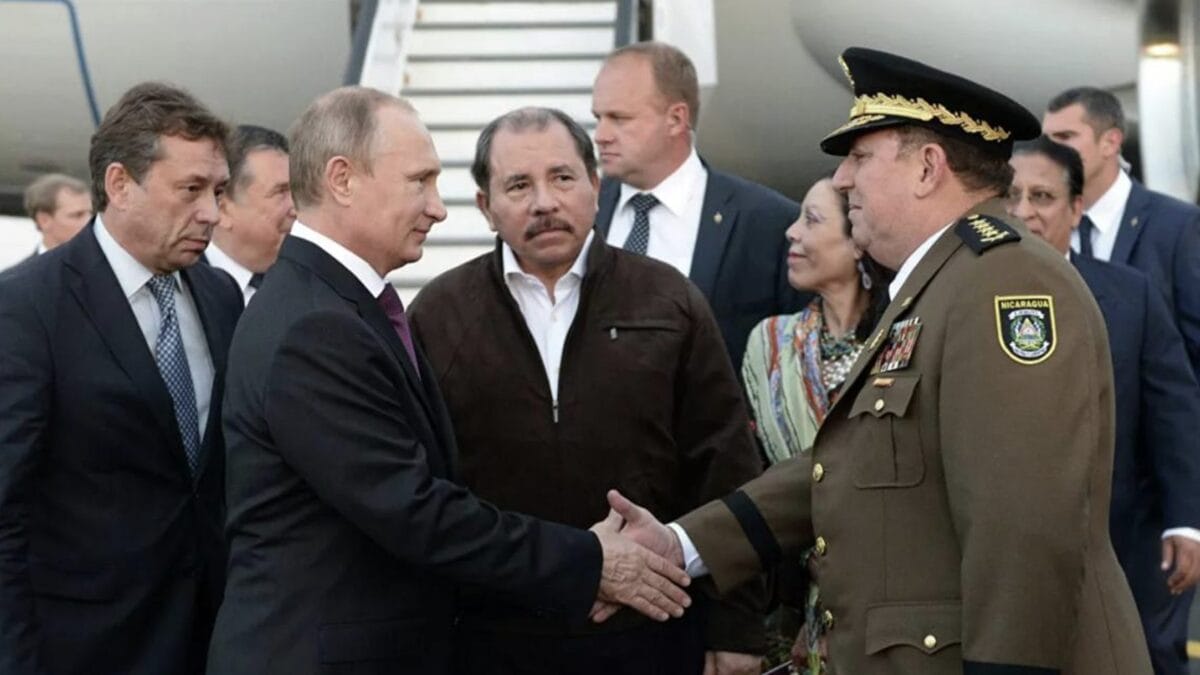
The “America First” foreign policy promoted by the Trump administration is based on the security, strength and prosperity of the United States. Taking into account this new vision, it is worth asking where the Ortega Murillo dictatorship and its actions are located in relation to each of these objectives.
Since the exit from the Organization of American States (OAS) at the end of November 2021, which was followed by the rupture of relations with Taiwan, Ortega is betting on a strategic surrender to China, while at the same time deepening his relationship with the dictator Putin.
China and Russia represent a political shield protecting the dictatorship from an international community that is finally understanding what its true face is and how far it is willing to go. They also hope that they will be the economic safeguard against the continued loss of access to resources from the International Financial Institutions (IFIs).
This means handing over Nicaraguan territory to these two regimes that drive logistical, technological and infrastructural actions with military and espionage implications, affecting American security. In addition, Nicaragua has become a platform for these two countries to project themselves politically in Central America and try to displace American influence.
With the passing of time, this handing over of sovereignty is consolidating and growing. Two recent events to be highlighted are that last April Daniel Ortega strengthened his commitments with Huawei and signed agreements with Rostelecom Solar, under the patronage of the Deputy Secretary of the Russian Security Council. Both companies are sanctioned by the United States and Huawei is considered a threat to American national security.
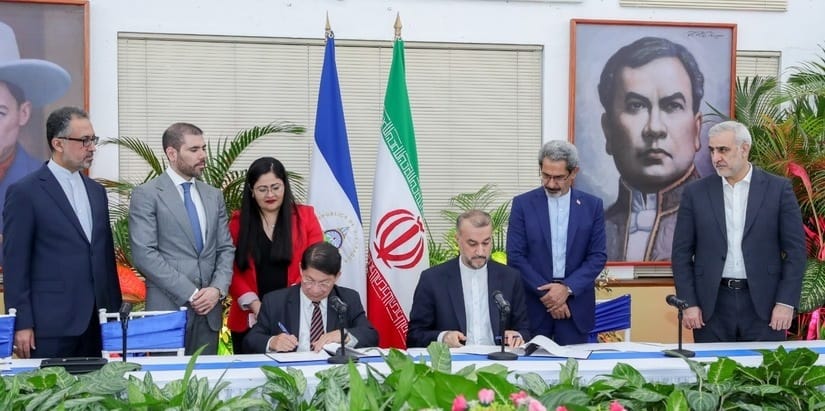
New agreements with China
This week a local delegation signed new contracts in China, including one on digital connectivity, with a company related to Huawei. They also reached agreements to install intelligent logistics management platforms and equipment for the Sandinista Army.
This shows the extent of the dictatorship’s commitment to these countries, considered enemies of the United States, and who in Latin America work jointly with Venezuela and Cuba.
To this must be added that the use of selective migration as a political weapon continues to be available for the dictatorships to use Nicaragua as a port of passage to send operatives to the United States. In April, Ortega and Murillo ordered their deputy employees to include South Ossetia on the list of countries whose citizens enter Nicaragua without visas.
In recent years, Nicaragua became the country with the lowest drug seizures in the region, reflecting the policy that the Sandinista regime has been promoting since the 1980s: to facilitate drug trafficking for economic reasons. But ideological reasons against the American society cannot be ruled out.
It is no coincidence that in the second week of May, the head of the US Southern Command, Alvin Holsey, during the Annual Conference on Hemispheric Security organized by Florida International University, expressed his concern about the influence of China, Russia and Iran in Latin America. He specifically referred to these countries and their responsibility in the transfer of drugs to the United States and their role in illegal migration.
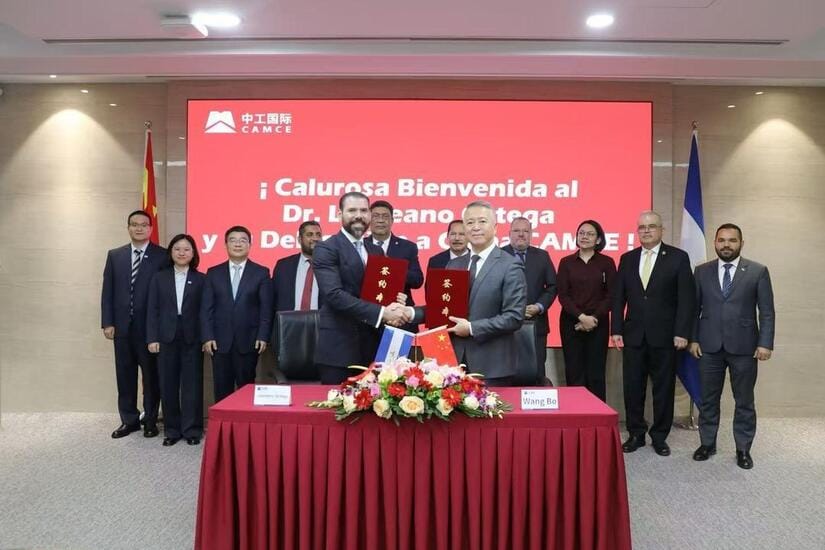
Economic relations are also affected
At the beginning of april, in an appearance before the U.S. Congress, when asked by a congressman about the role of Nicaragua, Cuba and Venezuela as enemies of the United States, Admiral Holsey himself pointed out that the region has 28 democracies and that it would be great if there were 31.
Economic relations with American businesses and investors are also affected by the decisions of the Ortega-Murillo dictatorship. The regime does not respect the rule of law and domestic and foreign companies have no legal guarantees. As a result, American investments have been reduced, and the regime has confiscated an American company.
All of the above responds to where the Ortega-Murillo dictatorship is placed in relation to the new American foreign policy and why the US Secretary of State, Marco Rubio during his first visit to the region and in a publication referring to the commemoration of the seventh anniversary of the April protests, referred to Nicaragua as an enemy of the United States and of humanity. Today, the Nicaraguan dictatorship is considered an adversary that must be fought.
In the Nicaraguan Democratic Concertation (CDN), we continue working in all possible spaces to achieve the democratic transition that will put an end to the greatest enemy that Nicaraguans have had in their history: the Ortega-Murillo dictatorship.
